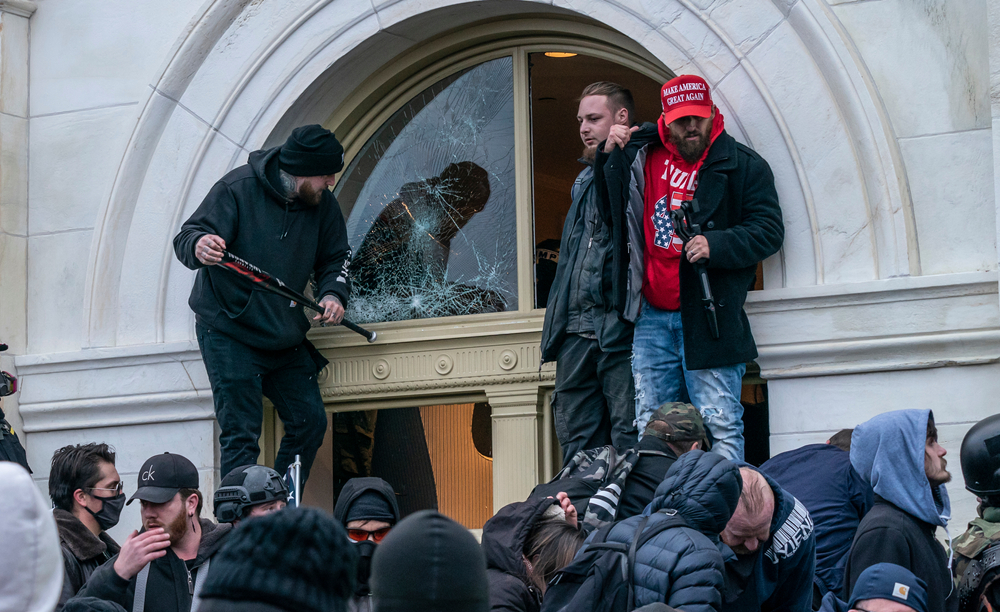The siege of the U.S. Capitol in Washington, D.C., and the strong possibility of more riots, violence, and protests across the nation bring up a legal and ethical dilemma for employers: Can a company terminate or discipline a worker because he or she participated in a riot or even the protest preceding a riot? Employers are concerned with how they are perceived by the public and their employees and have a strong interest in promoting company values such as respect, justice, and diversity; therefore, they may be tempted to terminate employees who deface those values.

Many of Donald Trump’s supporters who participated in riots at the Capitol faced backlash at work. An Illinois-based real estate brokerage terminated one employee who participated, stating that the firm “does not condone violence, destruction or illegal activities.” Another company fired its CEO, stating that the executive’s actions were not consistent with the company’s “core values.”
In a state where employment is “at will,” an employer could potentially fire someone for attending or participating in a protest. In other words, an employer can fire an employee for any reason (or for no reason) as long as the firing isn’t discriminatory, such as if it violates Title VII of the Civil Rights Act. This does not necessarily mean that an employer should fire an employee for peacefully protesting outside of the office, as it is common practice in America to allow employees to engage in politics that are important to them. But the riots at the Capitol are a different situation because they are labeled an act of insurrection rather than a political protest.
Details Matter
It is important that employers carefully evaluate situations on a case-by-case basis because it could set a precedent for how the employer must act in the future. It is important for employers to be consistent in their policies because policies can become problematic if employers allow some political statements but prohibit others. For example, an employee may feel discriminated against if the employer enforces its dress code against him or her for wearing a “Black Lives Matter” t-shirt even though that policy isn’t normally stringent.
There may be First Amendment considerations, as well. In most cases, private sector employers can fire employees for any reason and are not constrained by the First Amendment rights to free speech that apply to public sector employees. There are a few exceptions: Colorado, New York, North Dakota, and California have specific laws protecting employees’ free speech rights.
Under Colorado’s Off-Duty Activity Statute, an employer cannot terminate an employee for the employee’s lawful, off-duty activities. If the employee is not “on the clock” and is off the workplace premises, the employer cannot fire the worker as long as his or her activities were lawful. Employers cannot terminate an employee based on his or her political beliefs or views. But an employee’s participation in a violent protest—like Wednesday’s insurrection—would not receive protection under this statute because such actions are not lawful. Thus, an employer may terminate that employee.
California’s labor code has specific protections for an employee’s “political action or activity.” California Labor Code 1102 prevents employers from discharging or threatening to discharge an employee for following any particular “course or line” of political action or activity, such as gatherings, marches, and protests against actions by federal, state, or local government officials. California Labor Code 96(k) and 98.6 protect employees from being demoted, disciplined, or discharged for “lawful conduct occurring during non-working hours away from the employer’s premises.”
Additional Constitutional Considerations
Public sector employers have additional constitutional considerations. In Waters v. Churchill, the U.S. Supreme Court held that a public sector employee’s speech is protected by the First Amendment as long as it is on a matter of public concern and the employee’s interest in expressing himself or herself is not outweighed by any injury the speech could cause to “the interest of the State, as an employer, in promoting the efficiency of the public services it performs through its employees.” The Court elaborated that government agencies are charged by law with doing particular tasks. Agencies hire employees to help do those tasks as effectively and efficiently as possible. When someone who is paid a salary so he or she will contribute to an agency’s effective operation begins to do or say things that detract from the agency’s effective operation, the government employer must have some power to restrain the individual.
However, an employer may discipline or terminate an employee for missing work to protest as long as that employer would discipline employees for missing work for other reasons, too. An employer can also discipline or fire employees if their political activities significantly disrupt its business.
Andrew Neiman is an Associate at Fortis Law Partners.
